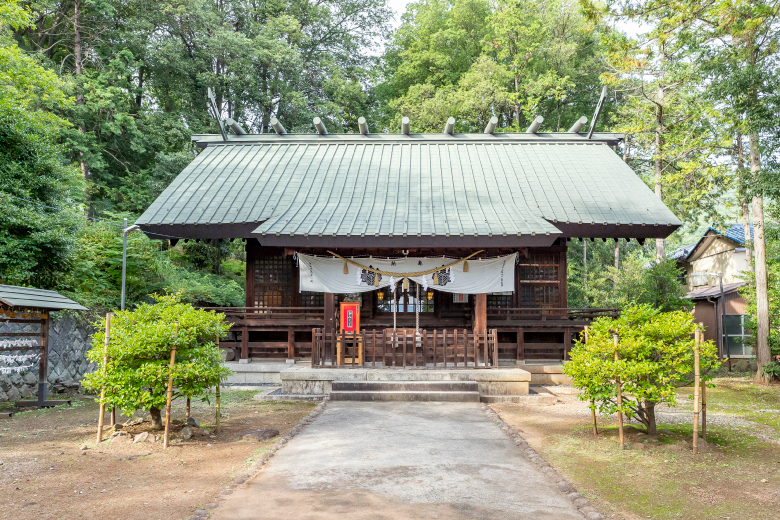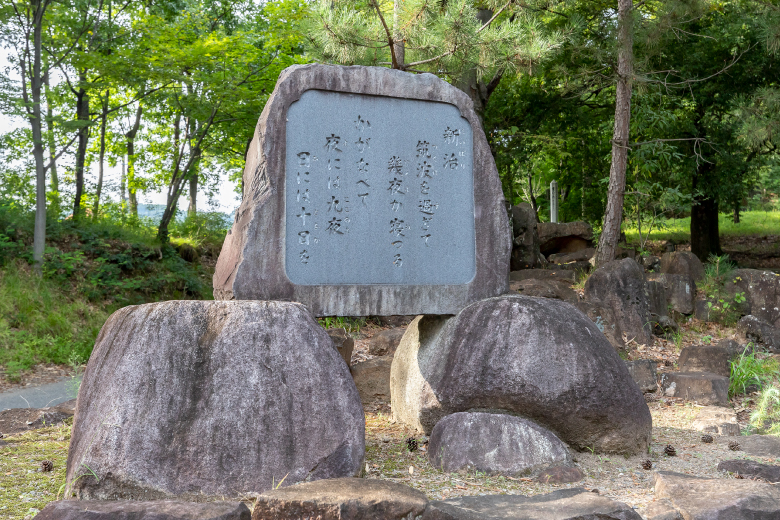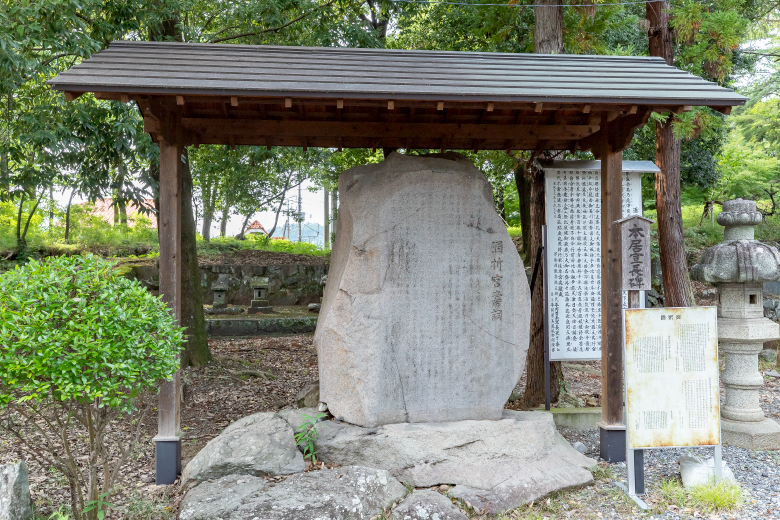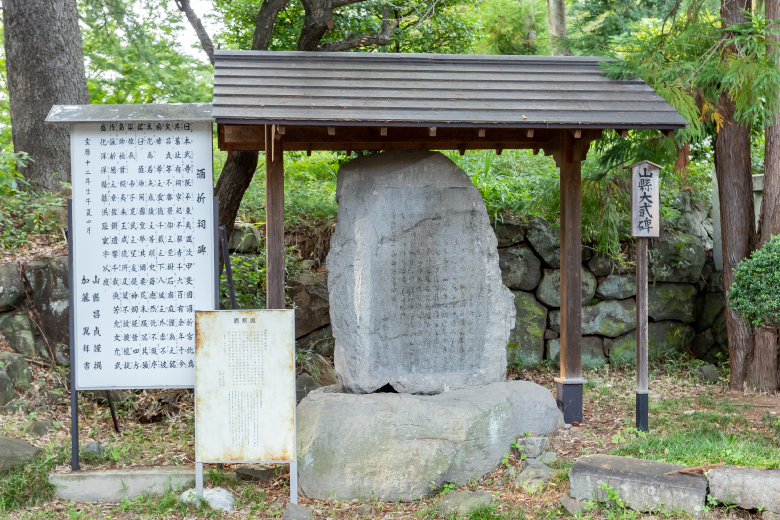Sakaorinomiya Shrine is an old shrine in Sakaori, Koshu City, and the sole shrine in Yamanashi Prefecture mentioned in the Kojiki (Record of Ancient Matters) and Nihonshoki (Chronicles of Japan). Prior to the Middle Ages, Sakaori was the administrative center of Kai Province. As such, the Kai Kusuji nine ancient roads that led to other provinces (Wakahikomichi, Nakamichi Okan, Sunshu Okan, Kamakura Kaido, Chichibu Okan, Ome Kaido, Hosakamichi, Hemiji, and Bomichi) all originated in Sakaorinomiya. It is also written as such in Kai Kokushi (Official Records of Kai Province) published in the Edo Period (1603-1868).
According to Nihonshoki, Yamatotakeru no Mikoto stayed at Sakaorinomiya on his way back from restoring order in Azumanokuni in the east. When he read a poem asking his attendants “How many nights have passed since we have left Tsukuba?” none of his attendants were able to give an answer, but an elderly man who kept watch over the fire continued the poem and answered, “Many days have passed—nine nights and ten days to be exact.” Yamatotakeru no Mikoto praised the elderly man for his wiseness and bestowed on him the title “Azumanokuni no Miyatsuko.” This was said to be the very first Renga duet poem written in Japan, and Sakaorinomiya came to be called the birthplace of Renga. A stone monument stands in the precincts of the shrine inscribed with the duet poem by Yamatotakeru no Mikoto and the elderly firekeeper.
Upon leaving Sakaorinomiya, Yamatotakeru no Mikoto gave to a member of a local wealthy family called Shionomino Sukune a tinder bag that had saved his life. Shionomino Sukune enshrined the tinder bag as the object of worship and Yamatotakeru no Mikoto as the maindeity of Sakaorinomiya. This story is said to date back roughly 1900 years.
The shrine was transferred from the slopes of Mount Tsukimi to its present location at an unknown date, and the main shrine building was lost in a fire in 1916. The main shrine building that exists today was built in 1942.
According to Nihonshoki, Yamatotakeru no Mikoto stayed at Sakaorinomiya on his way back from restoring order in Azumanokuni in the east. When he read a poem asking his attendants “How many nights have passed since we have left Tsukuba?” none of his attendants were able to give an answer, but an elderly man who kept watch over the fire continued the poem and answered, “Many days have passed—nine nights and ten days to be exact.” Yamatotakeru no Mikoto praised the elderly man for his wiseness and bestowed on him the title “Azumanokuni no Miyatsuko.” This was said to be the very first Renga duet poem written in Japan, and Sakaorinomiya came to be called the birthplace of Renga. A stone monument stands in the precincts of the shrine inscribed with the duet poem by Yamatotakeru no Mikoto and the elderly firekeeper.
Upon leaving Sakaorinomiya, Yamatotakeru no Mikoto gave to a member of a local wealthy family called Shionomino Sukune a tinder bag that had saved his life. Shionomino Sukune enshrined the tinder bag as the object of worship and Yamatotakeru no Mikoto as the maindeity of Sakaorinomiya. This story is said to date back roughly 1900 years.
The shrine was transferred from the slopes of Mount Tsukimi to its present location at an unknown date, and the main shrine building was lost in a fire in 1916. The main shrine building that exists today was built in 1942.
COURSE MAP
Let's go to the next spot!
- 1.4km / 4min by car
- 11Kai no Kodo History Park



